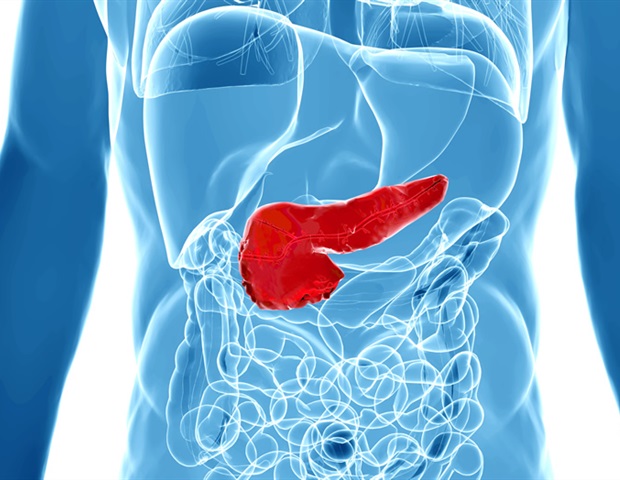A new genetic test developed at Mayo Clinic is redefining how clinicians diagnose and manage hereditary pancreatitis. Pancreatitis, inflammation of the pancreas, is a complex condition that can lead to chronic pain, repeated hospitalizations and serious complications including diabetes, kidney failure and pancreatic cancer.
The new hereditary pancreatitis gene panel available through Mayo Clinic Laboratories (Mayo ID: PANGP) resulted from collaboration among Mayo Clinic laboratories’ scientists, clinicians, and genetic counselors, serving as a prime example of innovation driven by patient need.
Pancreatitis can be difficult to diagnose and manage. It can be acute, recurrent, or chronic. In many cases, the underlying cause remains elusive. Symptoms can include belly pain, fever, an upset stomach, a rapid pulse and unintended weight loss. Pancreatitis can cause serious complications, including breathing problems, infections, diabetes, kidney failure and pancreatic cancer.
Internationally, roughly 2.75 million new cases of pancreatitis were diagnosed in 2021, and when existing cases were added, 5.9 million people had the disease, according to the most recent statistical sheet from the Institute for Health Metrics and Evaluation.
Pancreatitis is a complex disease with many potential causes – alcohol, smoking, autoimmune, toxins, and yes, genetics. When we can’t find a clear cause, genetic testing becomes key.”
Motaz Ashkar, M.B.B.S., gastroenterologist in the pancreatic clinic at Mayo Clinic
The new panel expands Mayo’s previous test from four genes to nine, incorporating the latest research and clinical insight. Unlike many commercial panels that include dozens or even hundreds of genes, Mayo’s test is intentionally focused.
“There’s a mindset in genetic testing that bigger is better,” says Linda Hasadsri, M.D., Ph.D., a clinical molecular geneticist at Mayo Clinic. “But if you include genes with weak or unproven associations, you risk giving patients results that are confusing or meaningless.”
The result of that focus is a panel that includes well-established genes such as PRSS1, SPINK1, CFTR, and CTRC and newer additions such as CPA1, CASR, and CLDN2 that are increasingly recognized for their role in pancreatitis and pancreatic cancer risk.
The test is built on whole exome sequencing, which looks at all disease-causing genes in an individual’s DNA blueprint, allowing for comprehensive analysis of coding regions across the genome. That approach comes with challenges, especially when it comes to tricky genes like PRSS1.
“PRSS1 is the most common cause of hereditary pancreatitis worldwide, especially in children,” Dr. Hasadsri says. “But it’s notoriously difficult to test accurately. We’ve seen a lot of false positives and false negatives from other labs over the years.”
To address this, Mayo developed a custom assay with multiple supplemental methods to help confirm results and avoid misdiagnosis. The lab also built in reflex testing capabilities – meaning if a provider orders the panel and the result is inconclusive, the lab can automatically perform additional testing without requiring a new sample or billing the patient again.
The clinical impact of the test is significant. A positive result can help explain a patient’s symptoms, guide treatment decisions, and even inform cancer surveillance strategies.
“If someone has PRSS1 pathogenic mutation, their risk of pancreatic cancer is higher,” Dr. Ashkar says. “We can start monitoring them earlier and more frequently.”
It also opens the door to family testing.
“If a patient tests positive, we can screen their relatives – even those who are asymptomatic,” Dr. Hasadsri explains. “That allows for early intervention and lifestyle changes that could prevent disease progression.”
Even a negative result can be meaningful, helping to rule out hereditary causes and reducing unnecessary testing or anxiety,” she adds.
While the current panel focuses on single-gene variants, the team is already thinking ahead to the potential of creating a polygenic risk score test for pancreatitis – a test that would assess multiple risk factors to calculate a person’s risk for the disease.

